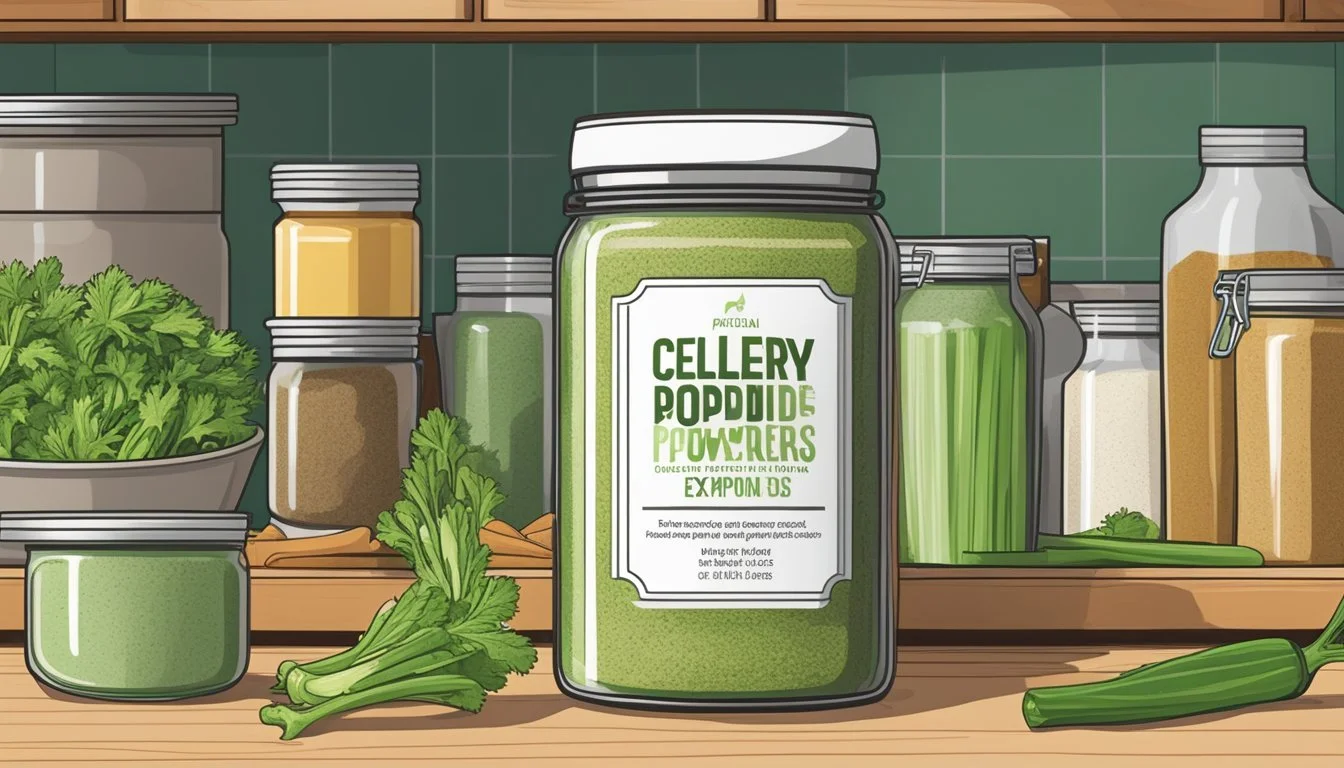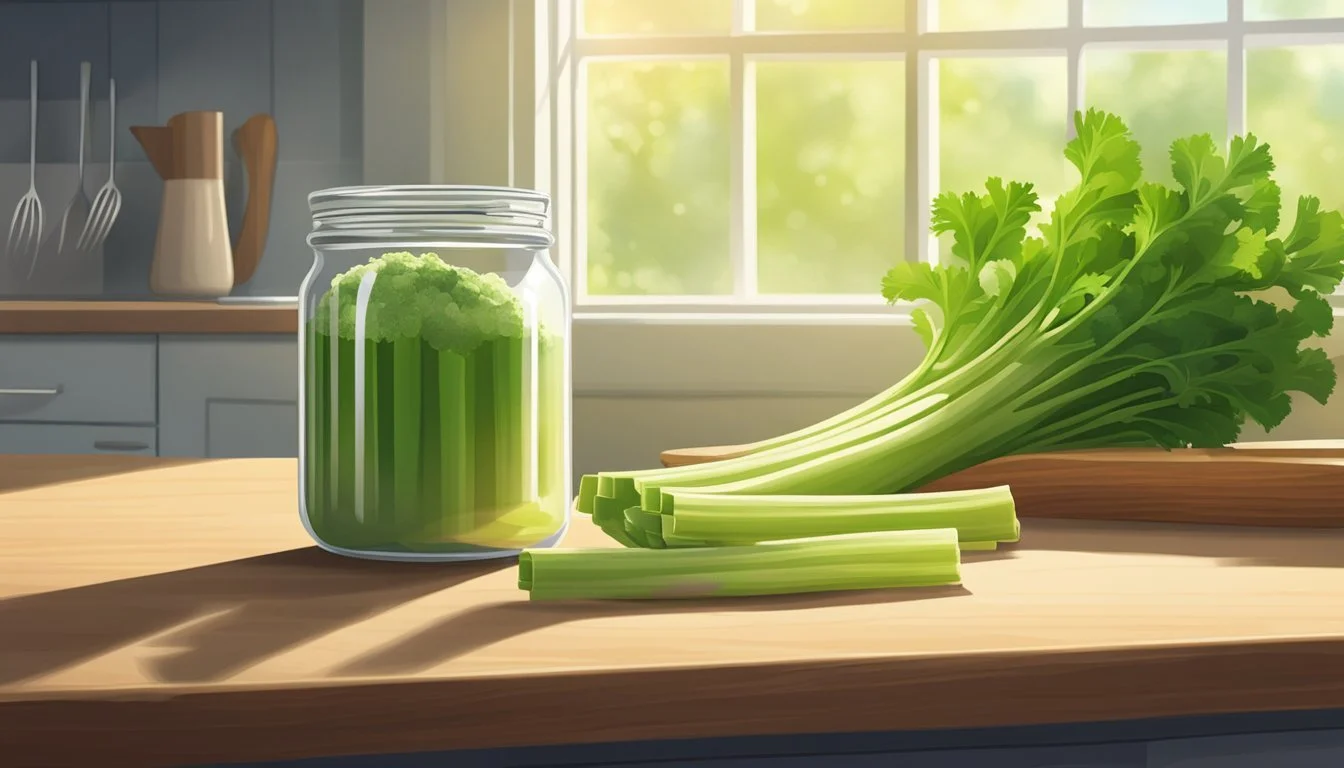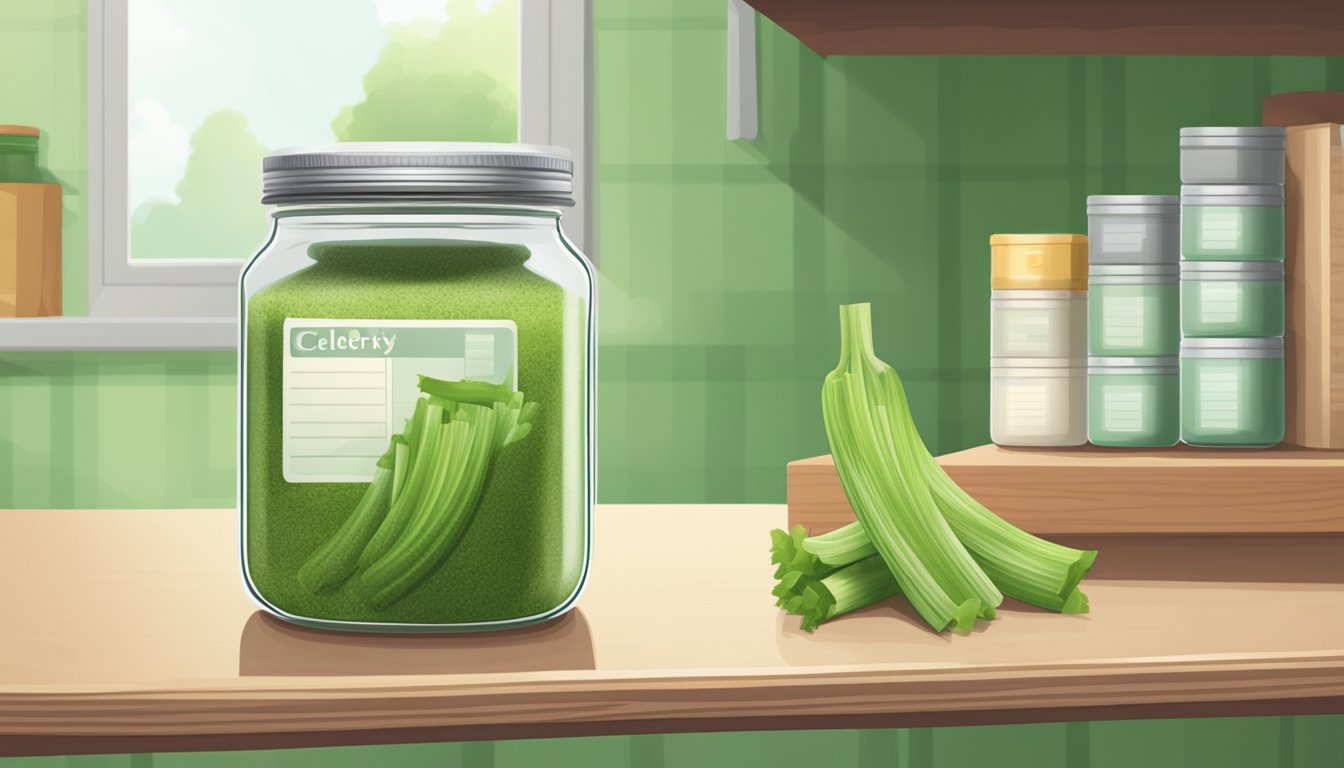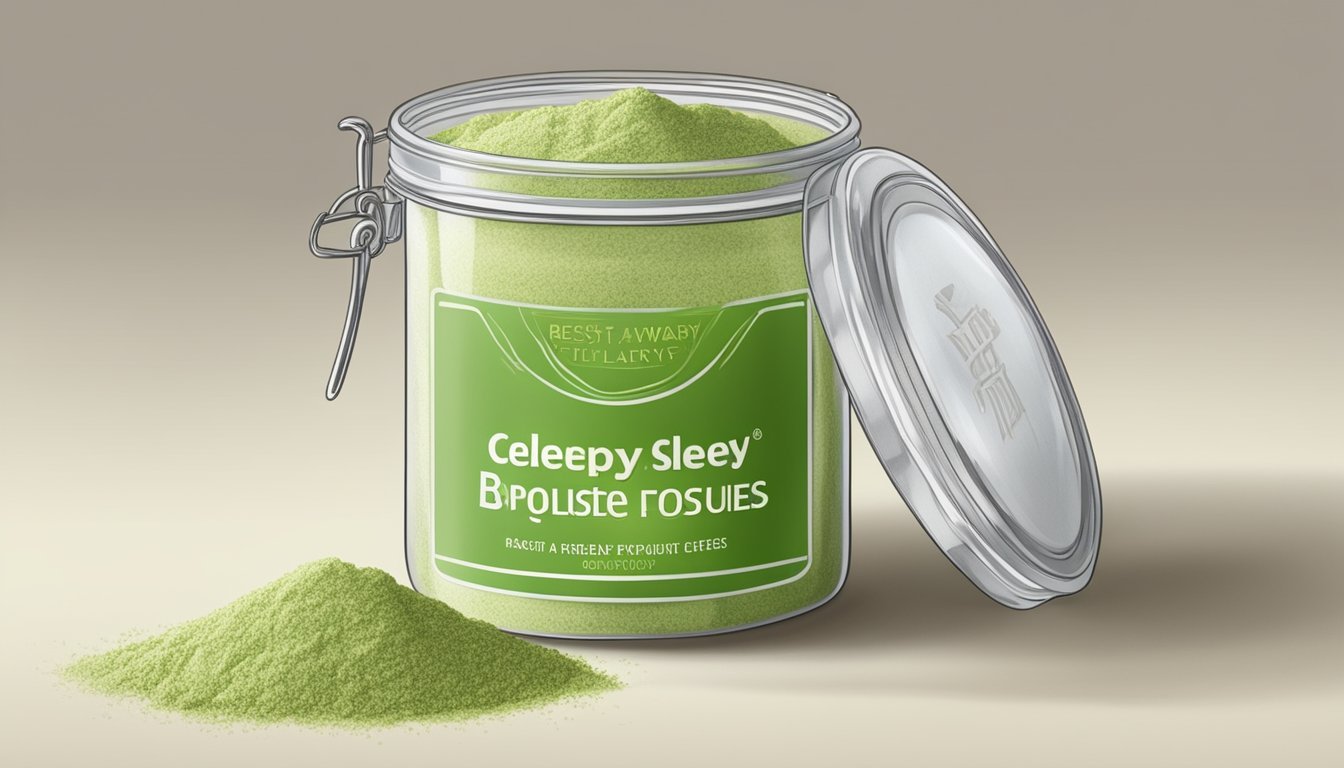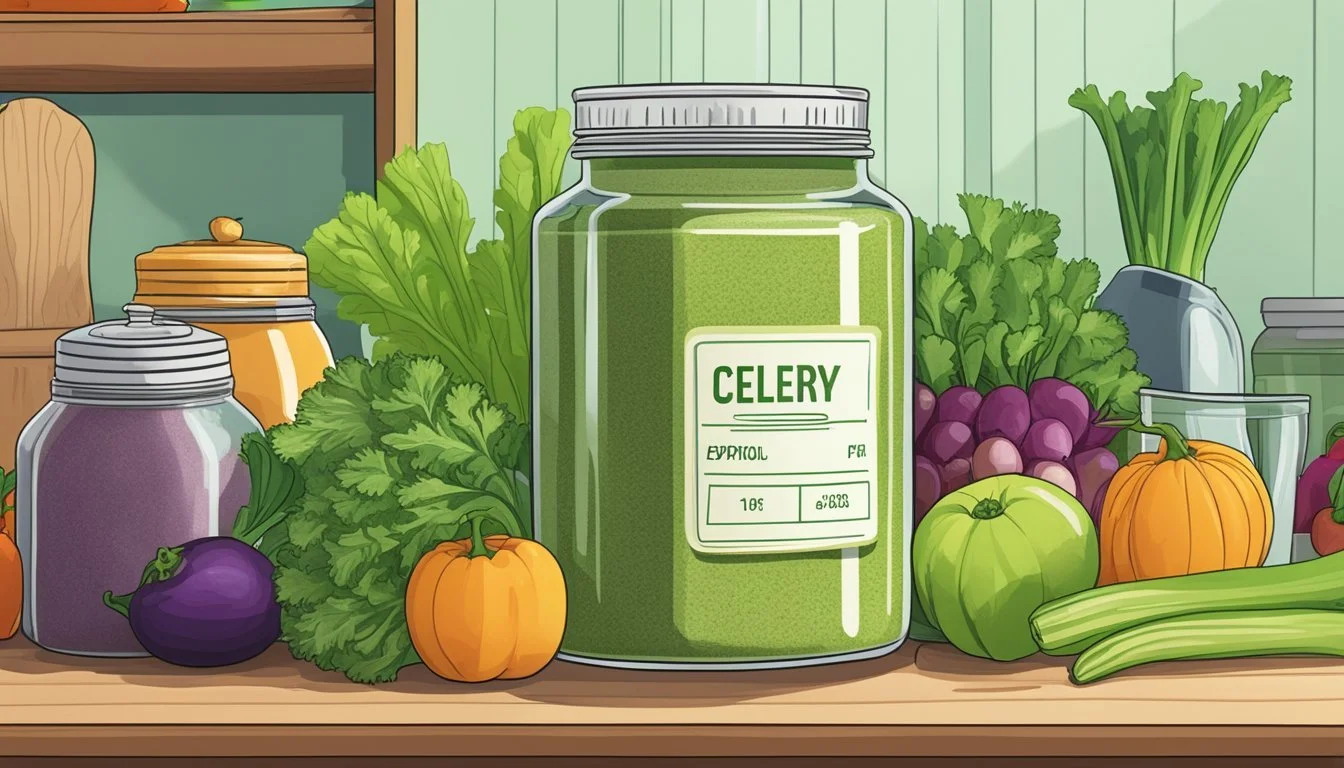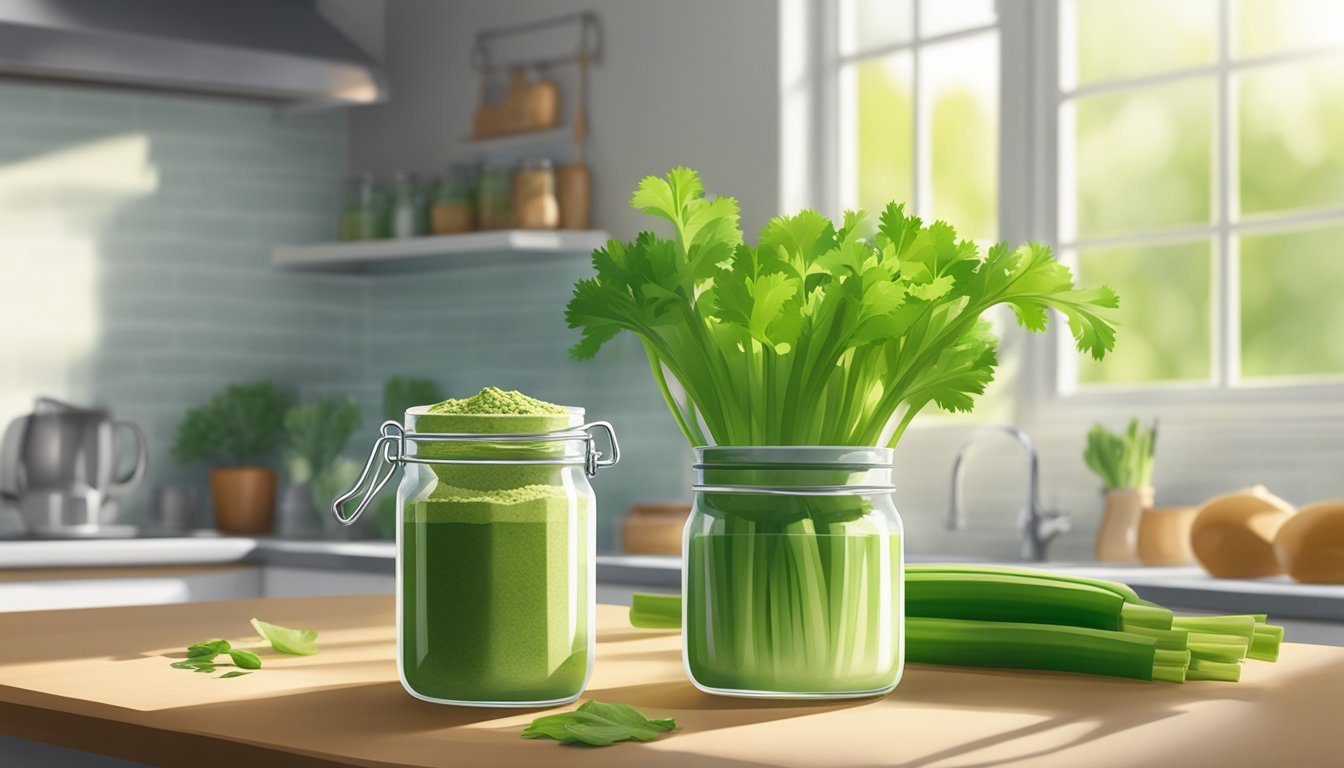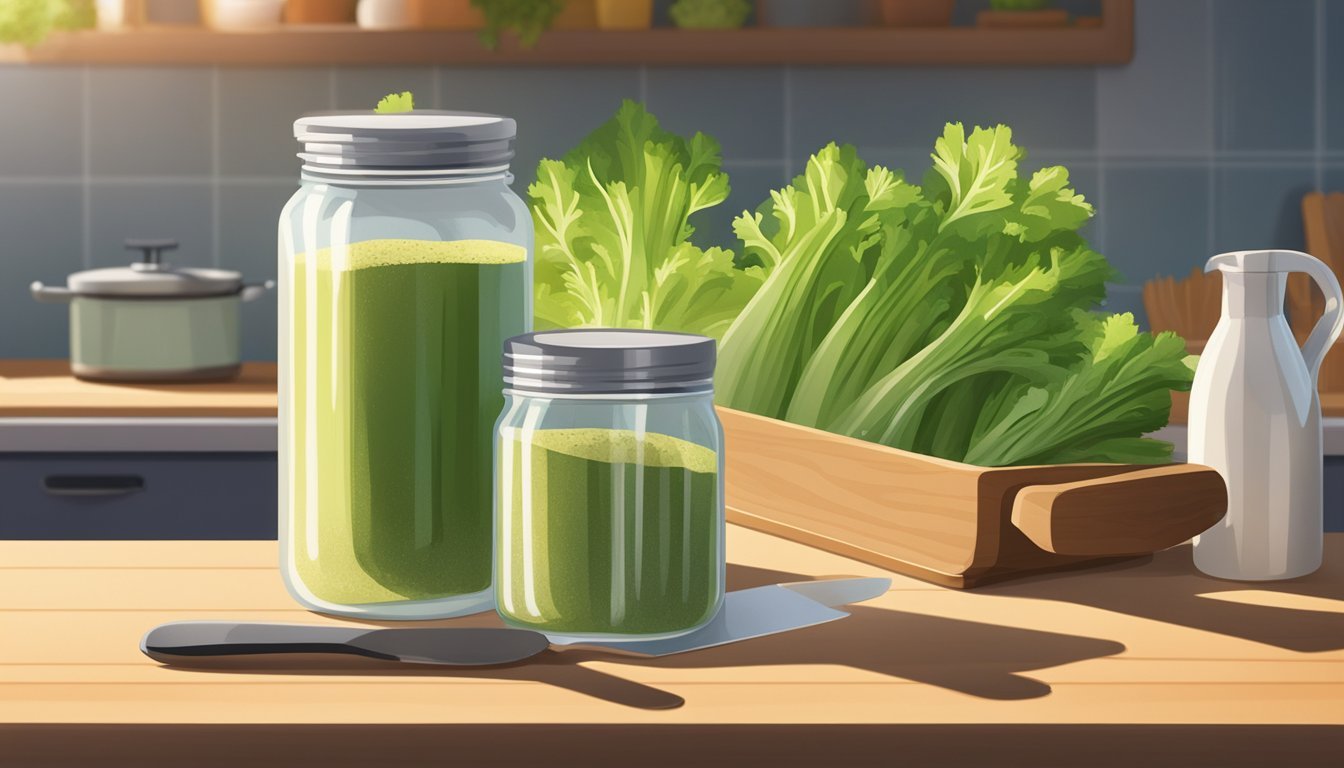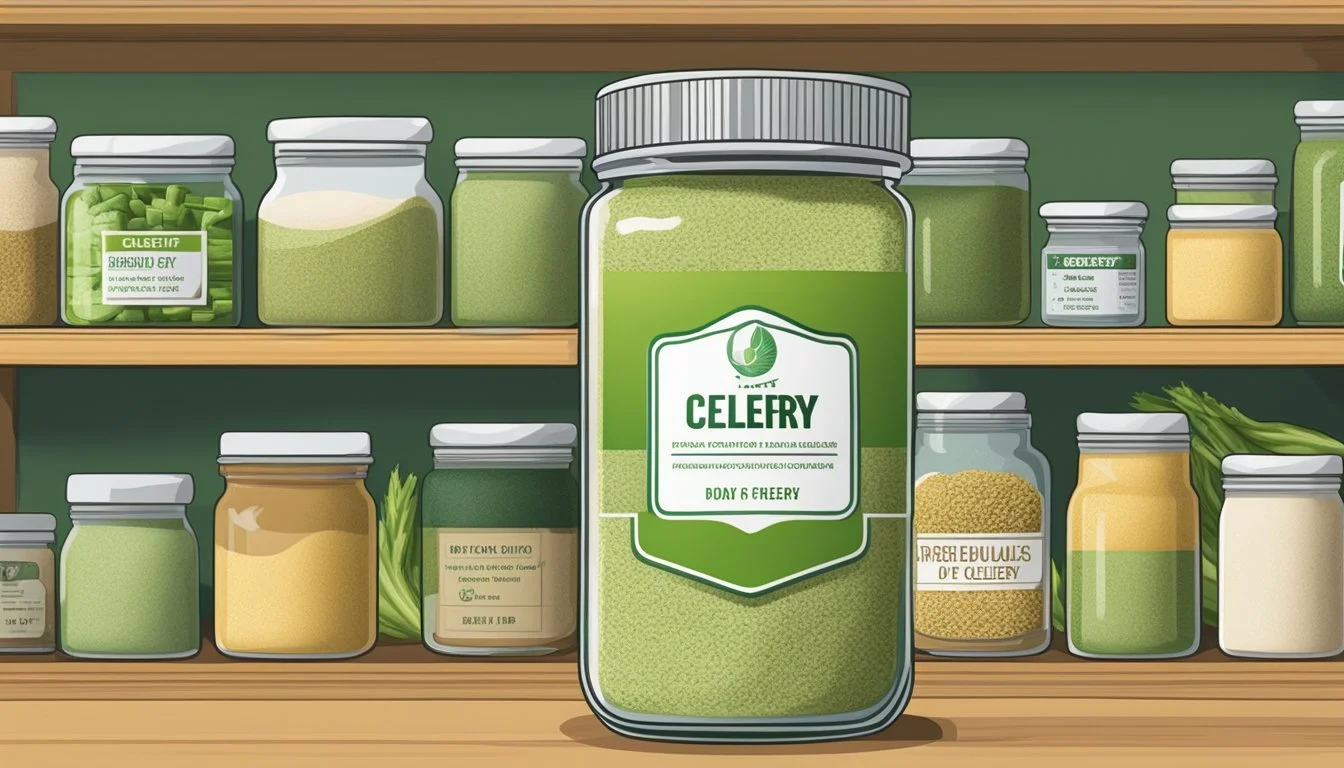How Long Does Celery Powder Last?
Shelf Life and Storage Tips
Celery (how long does celery last?) powder is a versatile food additive known for its seasoning abilities, as well as for its potential health benefits due to its antioxidant properties and nutrient content. As a dehydrated form of the celery plant, it carries the flavors and benefits of fresh celery but in a more concentrated form, making it a favored ingredient in a variety of culinary applications, from soups and juices to meat products. Ensuring its longevity is crucial for maintaining its flavor and nutritional value.
The shelf life of celery powder is of interest not only to culinary enthusiasts but also to those who use it for its preservative qualities in cured meats. Generally, the shelf life of spices like celery powder can be affected by several factors, including the way it is processed, stored, and handled. In optimal conditions, celery powder can last quite a while without losing its quality. Different sources suggest varying periods, but an unopened package can maintain its peak quality for as long as two to three years when stored properly.
Ensuring that the quality of celery powder remains intact involves storing it in a cool, dry place away from direct sunlight and moisture. Once opened, it should be resealed tightly after use to prevent exposure to air and moisture, which can degrade its quality. This kind of careful storage not only extends the shelf life but also preserves the integrity of its flavor and nutritional benefits.
Understanding Celery Powder
The culinary and health landscapes have embraced celery powder thanks to its nutritious profile and array of benefits. It acts both as a seasoning and a health supplement, making it a versatile ingredient in many kitchens.
What Is Celery Powder?
Celery powder is the product of dehydrated and ground celery. It preserves the distinctive flavor of the celery vegetable and is commonly used as a spice or seasoning agent. The powder form of celery is convenient for storage and has a longer shelf life than fresh celery stalks.
Nutritious Profile of Celery Powder
Nutrient Presence in Celery Powder Vitamin K High Vitamin C Moderate Potassium Good Amount Folate Present Fiber Available to a lesser extent Antioxidants Rich in antioxidants
Celery powder contains a good spectrum of vitamins and minerals. It is particularly rich in vitamin K and contains a moderate amount of vitamin C. Potassium and folate are also present, contributing to the nutritional value of the powder. Despite the drying process, fiber is retained, although to a lesser extent than in fresh celery.
Health Benefits of Celery Powder
Celery powder is lauded for its health benefits that coincide with its rich antioxidant content and the presence of beneficial compounds such as nitrates and nitrites. Considering its antioxidant properties, it is associated with:
Reducing inflammation: Celery powder can help alleviate inflammatory conditions.
Lowering blood pressure: The nitrates and nitrites in celery powder are converted to nitric oxide in the body, which can aid in blood vessel dilation.
Moreover, celery powder often serves as a natural preservative in meats due to its natural nitrate content. The use of celery powder in place of synthetic nitrates or nitrites can appeal to those seeking a more "natural" food product. Importantly, it does this while contributing nutrients without adding a significant number of calories, positioning it as a favorable addition to a health-conscious diet.
Storage Fundamentals
Proper storage is crucial for maintaining the quality and extending the shelf life of celery powder. It is sensitive to external factors such as moisture and heat, which can significantly influence its freshness.
Optimal Conditions for Storage
Celery powder should be stored in cool, dark conditions to preserve its flavor and prevent spoilage. The ideal storage location is often a pantry or cupboard that avoids direct sunlight. They should ensure the celery powder is kept in an airtight container to prevent exposure to air, which can degrade the quality over time. Storing it in a fridge can also be beneficial, especially if the powder is expected to be used over an extended period.
Effects of Moisture and Heat on Celery Powder
Moisture: Moisture is the enemy of powdered spices, including celery powder. It leads to clumping and can foster mold growth. Therefore, it's imperative to keep celery powder in an environment where humidity is controlled. A desiccant packet in the container can help absorb any excess moisture.
Heat: Excessive heat can cause celery powder to lose its potency, as it can break down the volatile compounds responsible for its flavor. Shelf life can be reduced if the powder is stored near heat sources like stoves or in places that experience high temperatures, such as above the refrigerator.
Shelf Life Factors
Understanding the shelf life of celery powder and recognizing signs of spoilage are key to ensuring its optimal use in culinary applications.
How Long Does Celery Powder Last?
Celery powder, when stored properly, generally maintains its quality for 6 months to 2 years. However, several factors influence its longevity:
Storage Conditions: Celery powder lasts longest when kept in a cool, dry place away from direct sunlight and heat sources.
Packaging: An airtight container is ideal to prevent moisture and contaminants from affecting the powder.
Exposure to Air: Minimize opening the container frequently, as exposure to air can accelerate deterioration.
Marking the container with the date of purchase or packaging date can help track its age for better quality management.
Signs of Spoilage in Celery Powder
Spoilage indicators in celery powder are often noticeable:
Color Change: A fading or change in color suggests a loss of quality.
Odor: Any off smells or an absence of its characteristic aroma is a clear red flag.
Mold Growth: Celery powder should be discarded immediately if there are signs of mold, which may appear as fuzzy spots of various colors.
Clumping: Excess moisture can lead to clumping, which while not necessarily a sign of spoilage, can indicate improper storage conditions.
By paying attention to these specifics, one can ensure the celery powder used in their dishes is both safe and flavorful.
Usage Ideas for Celery Powder
Celery powder serves as a versatile ingredient in the kitchen, enabling cooks to impart the distinct celery flavor to a variety of dishes while also capitalizing on its lengthy shelf life.
Incorporating Celery Powder in Recipes
Celery powder can seamlessly integrate into an array of recipes. This dehydrated product is particularly convenient for dishes that undergo a cooking process, allowing it to rehydrate and blend with other ingredients. In cooking, chefs may opt to use it as a replacement for fresh celery; approximately 1/4 to 1/2 teaspoon of celery powder is equivalent to one stalk of fresh celery.
Below is a quick guide on how to use celery powder in common recipes:
Soups and Stews: Stir in celery powder for an earthy and aromatic undertone.
Vegetable Broth: Enhance broth with a dash of celery powder for complexity.
Marinades: Blend the powder with other spices to create a seasoned mix for meats.
Celery Powder and Flavor Enhancement
The concentrated flavor of celery powder makes it excellent for enhancing the flavor profiles of various dishes. It works well in savory recipe components where one desires the taste of celery without the added moisture of its fresh counterpart.
Key applications include:
Flavor Boost: A pinch can elevate sauces and gravies with its potent flavor.
Smoothies: Incorporate into green smoothies for a nutritious edge and savory twist.
Celery powder can be especially beneficial in adjusting the flavor of dishes without altering their texture, which is particularly useful in recipes where precision is important.
Preservation Techniques
Proper preservation methods are crucial for maximizing the shelf life, quality, and nutrition of celery powder. This section discusses two effective techniques: dehydration and freezing.
Extending Shelf Life Through Dehydration
One can extend the shelf life of fresh celery and maintain its nutritional value through dehydration. Dehydration involves removing moisture from fresh celery, which inhibits the growth of bacteria and mold. To ensure the best quality, one should:
Wash the celery thoroughly.
Cut the celery into small, even pieces to promote uniform drying.
Arrange the pieces on a fine mesh rack in a single layer.
If using an oven:
Preheat to the lowest temperature.
Place the rack in the oven.
Keep the door slightly ajar for air circulation.
If using a dehydrator:
Lay out the celery on the dehydrator trays.
Follow the dehydrator's instructions for the appropriate temperature and time.
Freezing: An Alternative Method
As an alternative to dehydration, freezing is another preservation method for celery. While it may alter the texture, freezing can preserve the quality and nutritional content of celery for later use in cooked dishes. The steps are:
Clean and separate celery stalks.
Cut into pieces if desired.
Blanching is optional for celery; it can be frozen directly.
Place the celery on a tray, not touching, and freeze.
Once frozen, transfer the celery to an airtight container or a heavy-duty freezer bag.
Safety and Quality Considerations
When assessing the longevity of celery powder, it is crucial to distinguish between organic and non-organic variants as well as to understand the food safety aspects involved.
Identifying Organic vs Non-Organic Celery Powder
Organic celery powder is derived from celery that has been grown without synthetic pesticides or fertilizers, in accordance with standards set forth by certification entities such as the USDA. Consumers often prefer organic celery powder due to concerns about pesticide residues in non-organic products. The Environmental Working Group (EWG) frequently cites non-organic celery in their reports, suggesting that it can contain higher levels of pesticide residues.
In contrast, non-organic celery powder may be sourced from conventional farming methods that utilize pesticides. It is important for consumers to identify the type they are purchasing, especially if they have preferences relating to environmental sustainability or specific dietary needs.
Food Safety and Celery Powder
Celery powder is often used as a natural preservative due to its antibacterial properties, particularly in cured meats where it serves as an alternative to synthetic nitrates. These natural preservatives can contribute to food safety by inhibiting the growth of harmful bacteria. However, processed meats with added celery powder should still be handled with care. Although the powder extends shelf life, it does not make the meat immune to spoilage.
When stored properly in containers with tight-fitting lids, dried celery powder can maximally retain its quality for about 1 to 3 years. It is vital for consumers to store it according to recommendations to ensure both safety and quality. Despite shelf life indications, sensory evaluations (e.g., changes in color, smell, or taste) should guide whether celery powder is still fit for consumption.
Nutritional and Dietary Insights
Celery powder, considered a nutritious additive, plays a versatile role in both flavoring and preserving food while maintaining a low calorie count, making it a suitable component for various diets focusing on weight loss or health-conscious eating.
Celery Powder in Special Diets
Celery powder finds its way into many special diets due to its health benefits. It is low in calories and contributes a range of phytonutrients, which can be particularly advantageous for individuals looking to maintain or pursue a healthy diet without adding significant caloric intake. For those on weight loss regimens, the addition of celery powder can provide flavor without compromising their dietary goals. Furthermore, it's often included in vegan and vegetarian diets as a natural flavor enhancer, especially in dishes where a depth of savory taste is desired.
Sodium Content and Dietary Implications
The sodium content in celery powder is a pivotal factor for those monitoring their salt intake. While it can be beneficial for flavoring, individuals with hypertension or those following a low-sodium diet must consider the sodium content's dietary implications. A balance should be sought to avoid undermining the health goals of a healthy diet.
Sodium: Celery powder contains a notable amount of sodium, which is important for flavor but can impact dietary restrictions.
Careful consideration of the amount used is essential to reconcile the benefits of celery powder with a controlled sodium intake.
Celery Powder in Health and Wellness
Celery powder, a derivative of fresh celery, brings with it a host of health benefits, particularly in the areas of digestive health and inflammation. This powder is increasingly acknowledged for its potential in lowering blood pressure and contributing to overall wellness without the bulk of the whole vegetable.
Celery Powder and Digestive Health
Celery powder contains a plethora of nutrients beneficial to digestive health. The fiber content in celery powder aids in digestion, promoting regularity and reducing constipation. It also supports the maintenance of a healthy digestive tract, facilitating the smooth movement of food through the gut.
Anti-Inflammatory Effects of Celery Powder
Rich in antioxidants, celery powder exhibits anti-inflammatory properties that can counteract inflammation within the body. The presence of compounds such as apigenin and luteolin in celery contribute to these effects, potentially reducing the risk of chronic inflammation-related diseases. Moreover, the regular inclusion of celery powder in the diet may assist in lowering blood pressure, another significant health benefit attributed to the vegetable's natural compounds.
Creative Culinary Applications
Celery powder adds an inventive twist to various dishes, enhancing flavor profiles through its unique taste and natural properties. It offers culinary enthusiasts new avenues for experimentation in the kitchen.
Innovative Uses in Modern Cuisine
The evolution of cooking has led chefs to seek out novel ingredients like celery powder to elevate their cuisine. Here are a few innovative applications:
Meat Preservation: It acts as a natural curing agent, ideal for homemade sausages and bacon.
Flavor Enhancement: A sprinkle over roasted vegetables gives a savory depth.
Dehydrated Snacks: It's an excellent addition to snack mixes or to season dehydrated fruits like apples and beets.
Pairing with Other Ingredients
Celery powder pairs exceptionally well with a collection of flavors and ingredients, creating sophisticated combinations. Here are some notable pairings:
Citrus: A tangy zip from lemon or lime complements the savory notes of the powder.
Ginger: Combined with ginger, it balances the zest with its earthy undertones.
Juices: Incorporate into celery juice, apple, or beet juice blends for an extra hit of flavor and nutrition.
Buying and Packaging
When purchasing celery powder, consumers should pay close attention to both the freshness of the packaged product and the labeling. These factors significantly influence the shelf life and overall quality of the celery powder.
Selection and Purchase Tips
When selecting celery powder, one should look for freshness indicators such as a vibrant color and absence of clumping, which can be a sign of moisture exposure. Freshness is crucial, as it impacts both flavor and shelf life. For those preferring organic products, certifications on the packaging are essential to ensure that the celery powder meets organic standards. The contents should be checked to confirm that no additional ingredients are present if pure celery powder is desired.
Check for:
Vibrant color
Dry, free-flowing texture
Organic certification (if preferred)
Absence of additional ingredients
Understanding Packaging and Labels
Proper packaging is key to maintaining the shelf life of celery powder. Typically, it comes in airtight containers or sealed pouches that protect it from moisture, light, and air, all of which can degrade the product rapidly. The labeling on celery powder should clearly state the contents and provide a best by or expiration date. These dates are useful guidelines for determining how long the powder will retain its optimum quality.
Packaging should be:
Airtight
Protective against light and air
Labeling must include:
Clear list of contents
Expiration or best by date
Comparisons and Substitutes
Selecting appropriate substitutes for celery powder requires understanding its characteristics and how they compare with other ingredients. The shelf life of celery powder can be influenced by these comparisons, particularly in terms of freshness and flavor.
Celery Powder vs Other Vegetable Powders
Celery powder is unique in its flavor and texture when compared to other vegetable powders. For instance:
Carrot Powder:
Flavor: More sweet and less pungent than celery powder.
Texture: Similar fine texture, can be used as a thickening agent.
Beet Powder:
Flavor: Earthier and lacks the distinctive tang of celery.
Oxalates: Higher in oxalates, which can be a concern for some dietary restrictions.
Spinach Powder:
Flavor: Provides a different flavor profile, lacking the specific celery taste.
Freshness: Like celery powder, it retains most of its nutritional value when dehydrated and powdered.
A critical aspect to remember is that while these vegetable powders can mimic the texture of celery powder to some extent, the flavor profile will significantly differ, thereby affecting the taste outcome in recipes.
Alternative Preservatives and Seasonings
When celery powder is not available or desirable, one might consider other preservatives and seasonings:
Celery Salt:
Composition: A blend of ground celery seeds and salt.
Use: One can create a similar flavoring by adding salt to celery powder.
Celery Flakes:
Texture: They provide a coarser texture than the fine powder but retain more freshness.
Use: Ideal for dishes where the difference in texture is negligible. Not suitable as a meat cure like celery powder.
In terms of preservation, celery powder is often used because of its natural nitrate content, which assists in curing meat. It’s hard to find such functionality in other seasonings, which means for curing purposes, it’s critical to use substitutes formulated for that specific use, like specially treated celery juice or synthetic preservatives designed for curing. When using celery salt as a substitute for celery powder in recipes, adjust recipes to account for the added salt content to maintain proper seasoning levels.
Environmental Impact
The production of celery powder has various implications for the environment, specifically when considering the sustainability of cultivation practices and the carbon output.
Sustainable Practices in Celery Powder Production
The agricultural sector has been increasingly adopting sustainable practices to reduce the environmental footprint of crop production. In the case of celery cultivation—a key ingredient for celery powder—these practices include:
Organic Farming: Utilization of organic farming methods helps in minimizing chemical inputs, resulting in lower soil and water contamination.
Water Management: Efficient irrigation systems and water conservation techniques are critical, given that celery is a water-intensive crop.
Crop Rotation: This helps in maintaining soil health and reducing the need for synthetic fertilizers.
Pest Management: Employing biological pest control reduces reliance on harmful pesticides.
By focusing on sustainability, producers can create celery powder that aligns with environmental standards and appeals to the eco-conscious consumer.
Glossary of Terms
In this section, readers will find definitions of key terms associated with celery powder, helping to better understand its characteristics, composition, and shelf life.
Key Terms Related to Celery Powder
Celery Powder: A seasoning made from dehydrated and ground celery, which is commonly used for its flavoring properties and as a natural food preserver due to its nitrate content.
Nitrates: Compounds found naturally in celery and used in celery powder, which can convert into nitrites and then into nitric oxide. They can act as preservatives in cured meats and are also part of discussions related to potential health implications.
Nutrition: The aspect of celery powder that provides vitamins and minerals, such as vitamin K, vitamin C, potassium, and folate, contributing to its health-related attributes.
Hydration: A term that refers to the moisture content within the celery powder. Proper dehydration is essential for creating a stable and long-lasting powder.
Electrolytes: Mineral salts such as potassium found in celery powder, essential for the body's hydration balance. They play a crucial role in conducting electrical impulses in the body.

